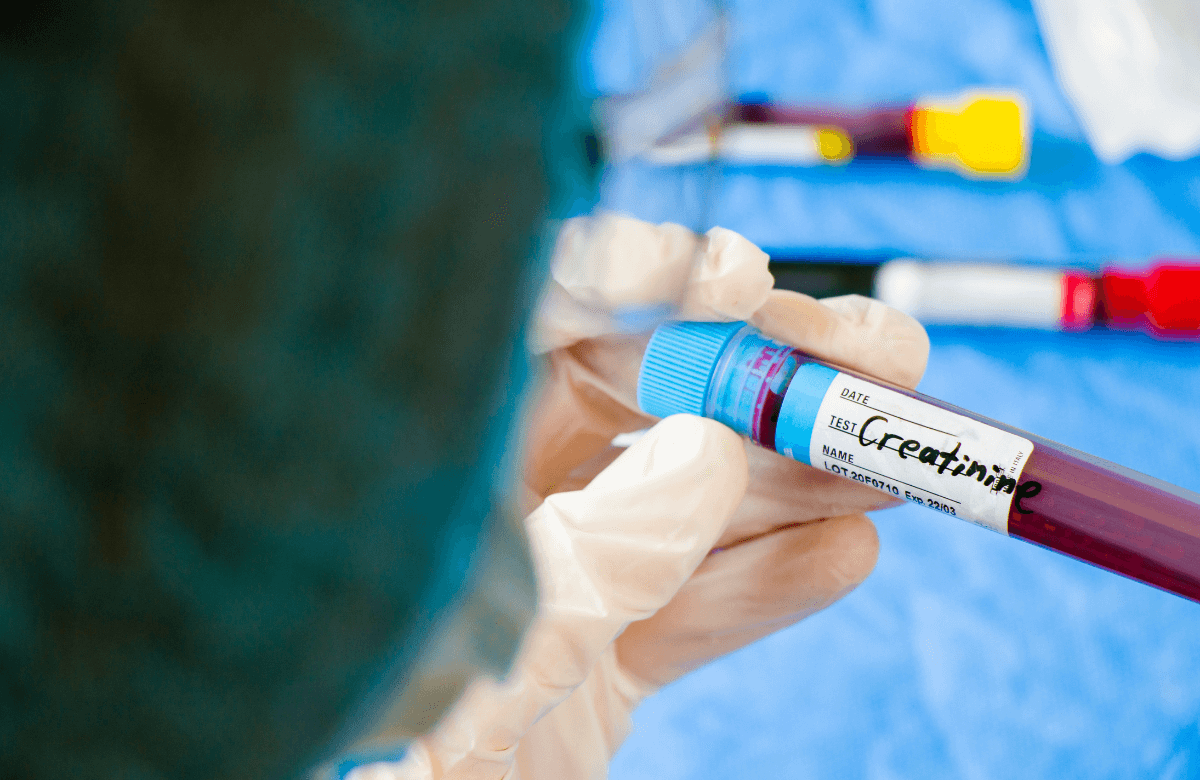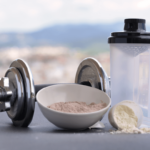Whether your doctor said you need to check your BUN: creatinine ratio or you found the BUN test randomly on google, it’s important to know about BUN, what it stands for, what creatinine does for the body, how to bring it back to normal levels, what are the normal levels, and so much more. Lucky for you we go over it all in this article so you don’t have to keep searching.
Jump to:
What Is The BUN: Creatinine Ratio?
BUN stands for blood urea nitrogen and BUN tests are what most doctors order as a part of a comprehensive metabolic panel to get an idea of your overall health and metabolism. This can be done with blood tests and urine tests to help determine your kidney health.
The BUN test measures the amount of urea in your blood and the buildup of creatinine outside the normal range. Urea is a waste product and it is produced in the liver as the body processes dietary protein. This specific protein is typically derived from the foods you eat, however, it can also result from tissue protein turnover. The kidneys naturally remove urea, nevertheless, the removal rate depends on factors such as hydration and blood pressure.
The normal range for BUN/Creatinine ratio on tests is anywhere between 5 – 20 mg/dL, althoughBUN/Creatinine ratio increases with age and with decreasing muscle mass. The ideal ratio of BUN to creatinine is between 10-to-1 and 20-to-1. A ratio above this range could mean you may not be getting enough blood flow to your kidneys.
What Is Creatinine?
Now creatinine is a waste product created from the normal wear and tear of muscles that is produced by creatine (a protein that helps generate energy for muscle contractions). Creatinine production has a fair share of influence on muscle mass and because this muscle mass changes very little, creatinine production tends to be consistent.
Creatinine is also removed by the kidneys, which is filtered from the blood into the urine and expels it from the body. That explains why checking blood levels is usually a good guide to how well your kidneys are working.
Together, creatinine and BUN are measured to estimate kidney function and can be used to check for problems such as dehydration, gut bleeding, kidney damage, kidney failure, kidney disease, and multiple other things.
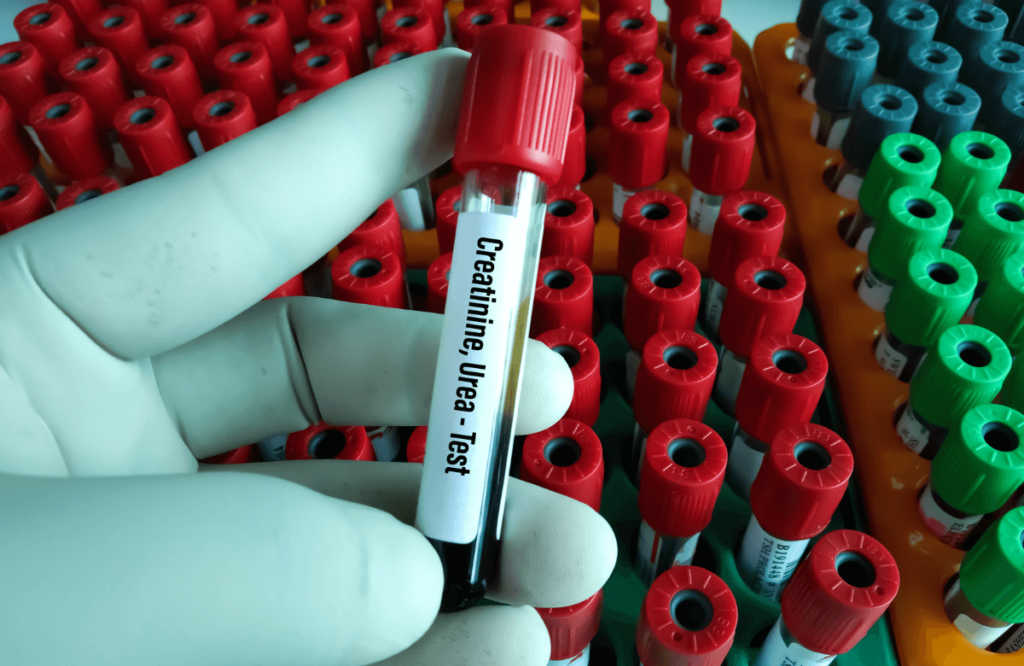
Causes Of High BUN/Creatinine Ratio
Dehydration
When the human body is in a negative condition of fluid balance, kidney function is strained. A rise in BUN can indicate dehydration, but it is reversible by getting fluids or just drinking enough water. If the ratio is more than 20 and the person has a normal creatinine it usually indicates dehydration, except if the BUN and creatinine are both elevated significantly and the ratio is < 20, this may be pointing towards an underlying kidney problem.
A Kidney Problem
Severe issues with the kidney can cause a high BUN: creatinine ratio. The adequacy of liver function will vary depending on the amount of urea produced so when both BUN and creatinine are elevated it can be an indicator of chronic kidney disease from things like high blood pressure, urinary tract obstruction, diabetes, renal, sickle cell anemia, and more. A high ratio could even cause conditions such as congestive heart failure, kidney injury, dehydration, or gastrointestinal tract bleeding.
CrossFit And Lean Muscle Mass
CrossFit doesn’t necessarily cause high BUN test results, but excessive working out, running, CrossFit and the like help build lean muscle mass. And the higher the body muscle mass and the body size are more likely to bring your test results outside the normal range. The blood urea nitrogen test is great to have to keep track of your levels, but if you’re a professional athlete or workout a lot then there shouldn’t be that much concern if you’re levels are slightly higher than normal, however, we always recommend going to see a doctor to rule out things like liver disease, renal disease, or other health conditions.
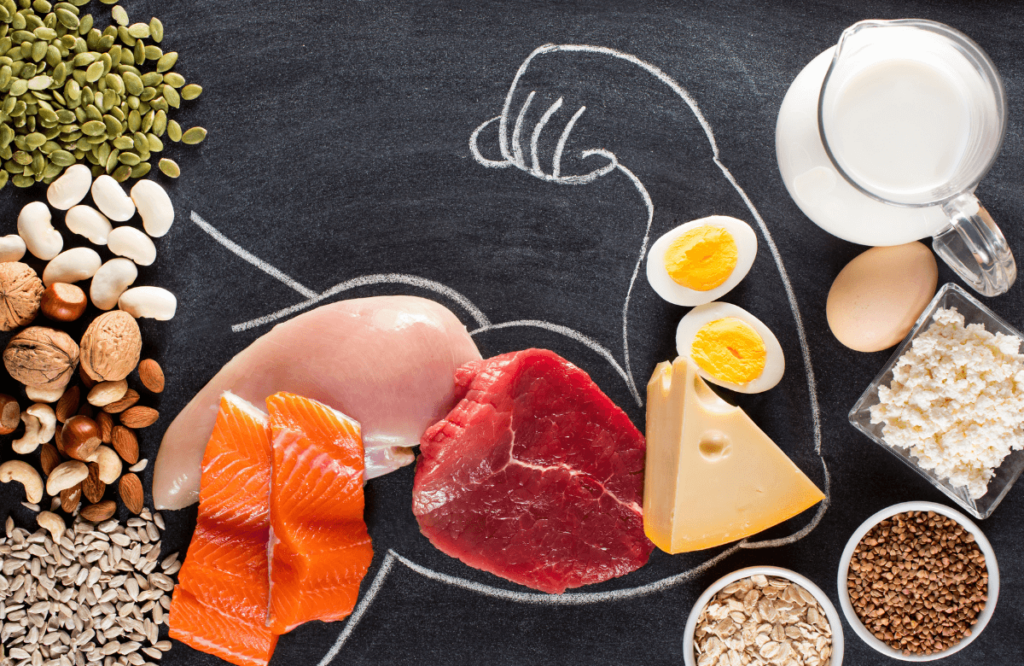
Causes Of A Low BUN: Creatinine Ratio
Low Protein Diet
A low BUN to creatinine ratio can be caused by very low protein intake as seen in cachexia or liver cirrhosis. If there is a low protein intake, in many cases this means there is some malnutrition and you will have a low BUN: Creatinine ratio.
Too High Of A Protein Intake
One of the main causes of a bad BUN to creatinine ratio is a very high protein diet. If someone is working out extensively to gain weight, they are likely ingesting a very high protein amount and a lot of nitrogenous waste is produced due to the protein breakdown, leading to ammonia generation that is eventually converted into urea and then eliminated from the urine. Typically, a high protein diet will increase muscle gain, meaning the blood creatinine level will eventually rise and catch up, normalizing the BUN: creatinine ratio. So with that said, a high protein intake can cause a high BUN/Creatinine ratio but only at the beginning, and as long as you stay hydrated and continue with your high-protein diet will it regulate.
Smoking
Smoking is a sure way to dangerously lower your BUN to creatinine ratio since it is likely to cause issues with your kidneys. So we recommend if you’re worried about your ratio levels that you stay away from smoking and secondhand smoke.
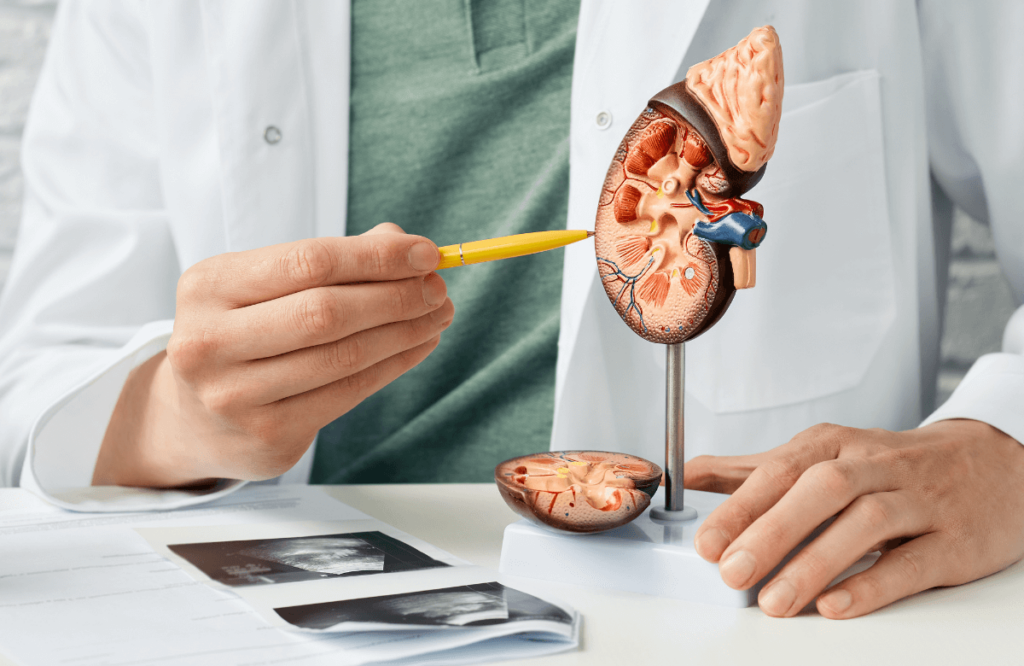
What Is A Good Ratio Level?
The lab reports of your BUN test will be a number that determines how much urea nitrogen is in the blood. Between 7 to 20 milligrams (28,000th to an ounce) per deciliter (about 3.4 ounces) is the parameter of a healthy BUN level.
However, your BUN/Creatinine Ratio will increase with age and with lowering muscle mass so if your BUN level is higher a few years later, that could be it. It doesn’t always mean there is a problem.
Why You Should Get And Care About Your BUN Test Results
If you feel like you might be having some issues and aren’t sure where to start, the best option is always to talk to your doctor and ask if a BUN test could help determine what you need.
Make sure to tell your doctor if you have the following symptoms when talking about a BUN test
A change in urination frequency and urine flow rate
You suffer from fatigue
Issues with your digestive tract
Pee that is foamy, bloody, discolored, or brown
Swelling in your arms, hands, legs, ankles, around your eyes, face, or abdomen
Restless legs during sleep
Pain in the mid-back (where kidneys are located)
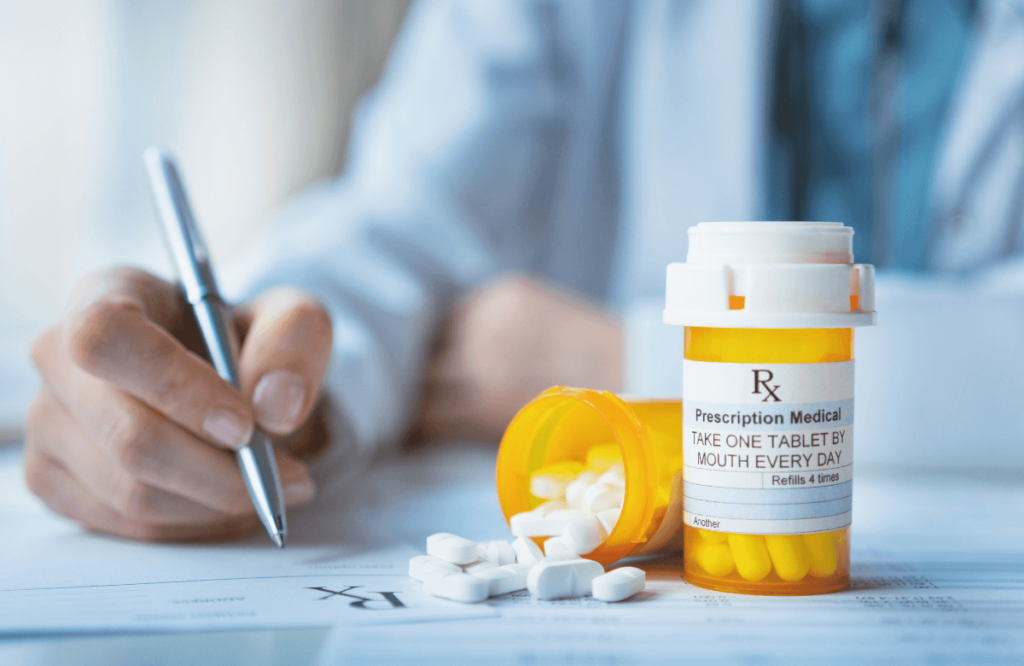
Could Medications Affect A BUN: Creatinine Ratio?
The short answer is, yes. Diuretics are the worst possible option for people with a high BUN: creatinine ratio. Diuretics (also called water pills) are medications designed to increase the amount of water and salt expelled from the body as urine. They are often prescribed to help treat high blood pressure and used for body water retention. This means people who use diuretics should get tests done to evaluate electrolyte and renal function levels every few months or as prescribed by a doctor.
Treatment options for low creatinine
If you are exercising regularly and sweating a lot or simply not drinking enough, dehydration could be a cause of bad BUN: creatinine levels, but if you’re wanting to do more than just “drink water” then look no further. We have an entire list of things you can do to prevent or help raise your low creatinine levels.
Don’t Take Supplements
Obviously, supplements are great. They are an easy and quick way to help where your body is lacking, however, getting too much of a specific micronutrition can cause problems. The one to avoid is creatine if you already have higher BUN levels, which is a natural compound made in your liver that is transported to your muscles where it’s used for energy. When creatine is used as energy, it’s turned into creatinine, a metabolic byproduct. Now if you have too much creatine in your body, turning creatine into creatinine can become a little bit of an issue, by making the body work harder and changing your normal level of creatinine to abnormal creatinine levels.
Eat Fiber
More research is needed to determine dietary fiber’s effects on creatinine levels, however, there is some clinical significance from one study that showed reductions in creatinine levels in people with chronic kidney disease who increased their fiber intake. Fiber can be found in foods like fruits, vegetables, whole grains, and legumes.
Watch Protein Intake
Research has shown that eating lots of red meat and other high-protein foods can increase creatinine levels so swapping out some of your regular high-protein foods for more vegetable-based dishes like vegetable patties, vegetable stew, and lentil soup can be a great idea to assist in helping your levels.
Less Salt
Diets that include excess salt and processed foods can contribute to high blood pressure and are often loaded with sodium and phosphorus, which can affect your BUN: creatinine levels in a negative way. Consider eating whole, unprocessed foods, and using spices and herbs to flavor your food instead of salt when possible.
Drink Fluids
Fluid intake can be an issue for people who have kidney disease, so it’s really important to talk with your doctor about how much water and other fluids you should be drinking daily, as well as the best time in the day to drink them.
Avoid Smoking
Smoking cigarettes can harm the body in a number of ways, so quitting or avoiding secondhand smoke can be a good way to reduce the likelihood of issues with your kidneys and avoid increasing creatinine levels.


